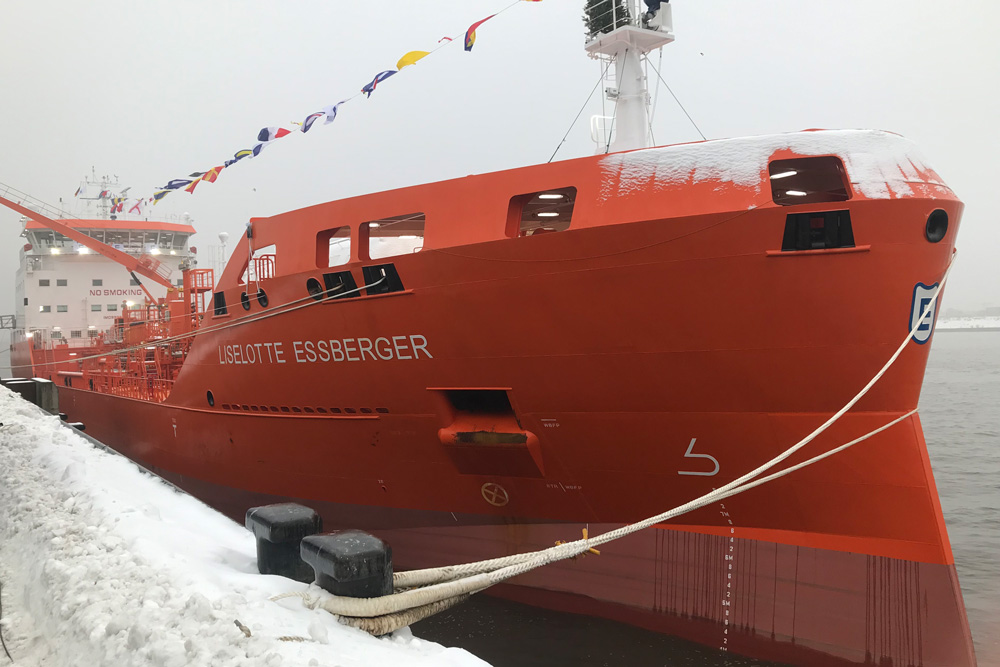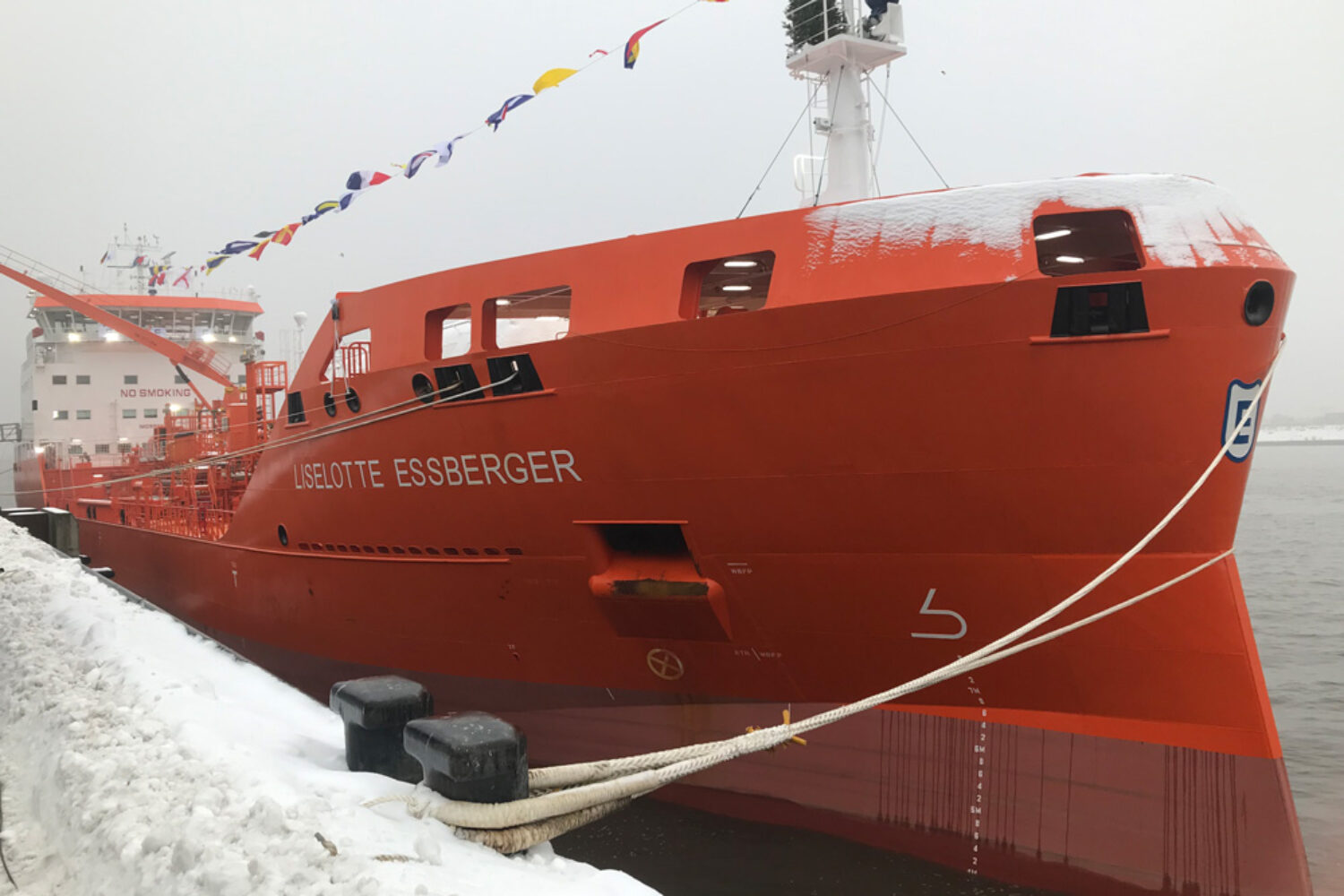The “Liselotte Essberger” was christened today in Hamburg with the traditional toss of a champagne bottle.
After delivery, the new chemical tanker made its way from China through the Suez Canal and the Mediterranean to Europe.
It was the longest maiden voyage in the history of the John T. Essberger shipping company, as company boss Eberhard von Rantzau said at the naming ceremony. Liselotte Essberger” was christened today at the Cruise Center Altona by Greet Verheyden, Logistics Manager of Borealis, a customer of the shipping company. The godmother wished the ship luck and banged the bottle against the hull.
“Liselotte Essberger” is the first ship in a series of four built by China Merchants Jinling Shipyard in Yangzhou on the Yangtze. The second newbuilding has also already been delivered.

It is already the fifth ship of this name in the company’s almost one hundred-year history. The shipping company currently has 32 modern chemical tankers and two container ships. The chemical tankers are deployed in a pool with the Norwegian shipping company Stolt-Nielsen under the name E&S Tankers.
Liselotte von Rantzau-Essberger (1918-1993), who gave the company its name, was the daughter of shipping company founder John T. Essberger. She was at the helm of the company for 30 years.
Thanks to Essberger’s financial partner and co-investor
The main drive is a dual-fuel engine from MAN with 3,180 kW, which can be operated with marine gas oil (diesel) or liquefied natural gas (LNG) as required. “It costs a few million more, but we did it for our customers and for everyone,” said von Rantzau. He thanked the financing partners Credit Suisse and Berenberg Bank as well as the co-investor Sächsische Ärzteversorgung.
The new building is a chemical tanker with 16 stainless steel tanks. The ship, which has an ice class 1A rating, is a good 116 m long, 18 m wide and is operated by a crew of 15.
The tank on deck for the liquid gas has a capacity of 350 m³. This is sufficient for a distance of around 4,200 nm. The construction of the ship is being funded by the Federal Ministry of Transport with a total of €1.58 million as part of the implementation of the German government’s mobility and fuel strategy (MKS). The money was granted to partially offset the additional costs for the ship’s LNG propulsion system, it is reported.













